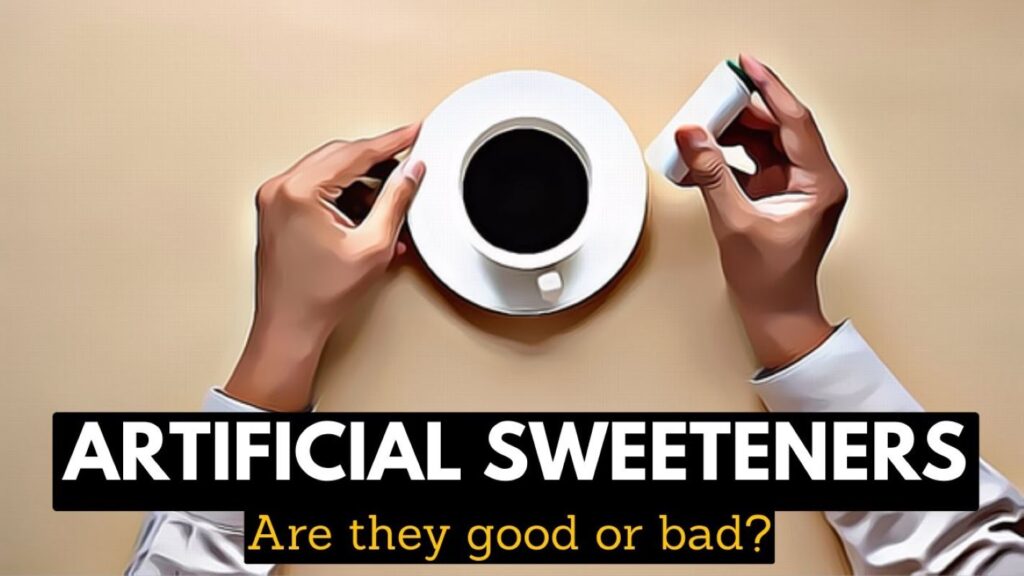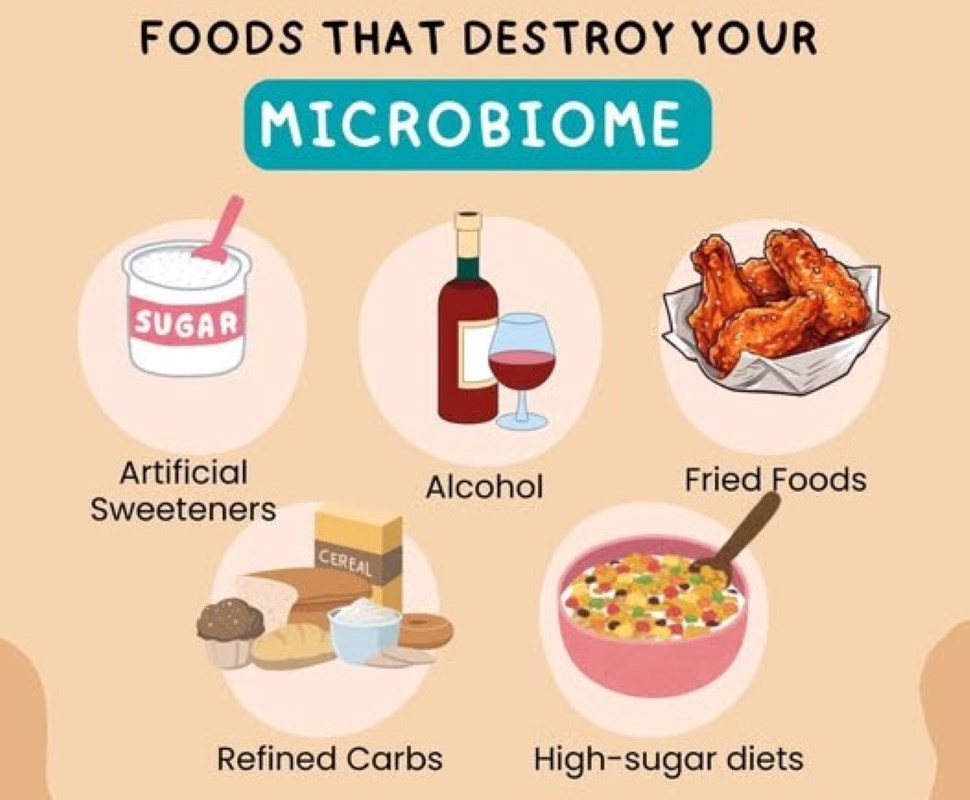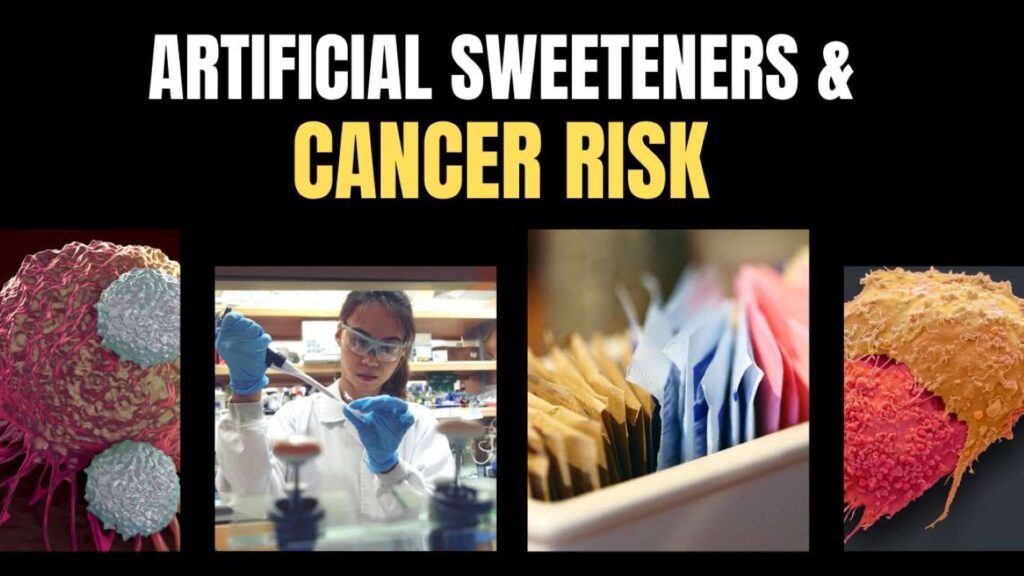It is easy to overlook the many dangers of artificial sweeteners since they are often touted as low-calorie or non-nutritive alternatives. Food regulatory bodies have, in recent years, been identifying various health complications linked to the consumption of artificial sweeteners. Unfortunately, artificial sweeteners have become ubiquitous as they feature prominently in almost all sweetened store-bought food products. So, if you regularly consume beverages and soda drinks, sugar-free gums, syrups, gelatin-based products, and similar processed foods, beware!
For example, the WHO declared in 2023 that aspartame has cancer-causing potential when ingested in foods. Aspartame is a prolific artificial sweetener initially approved for commercial food production. Despite the raging artificial sweeteners controversy, we cannot take away their benefits, chief among which is the reduction of caloric intake. However, it would be ill-advised to look away from the potential dangers of artificial sweeteners.
Consequently, we shall in this piece identify some potential side effects that have earned artificial sweeteners the ‘dangerous’ label. Similarly, we shall juxtapose myths and facts about artificial sweeteners.
What Are Artificial Sweeteners?
Artificial sweeteners are sugar alternatives that help food manufacturers sidestep some drawbacks of using cane sugar. Usually, they are compounds or chemicals engineered to taste like cane sugar. These sugar alternatives are sometimes classified as non-nutritive sweeteners, not impacting any nutrients after ingestion, or as low-caloric, contributing relatively low calories to your diet.

Manufacturers favor artificial sweeteners for a handful of reasons, but top of the list is affordability. Since popular sugar alternatives usually taste way sweeter than cane sugar, they make large-scale production cheaper, particularly for products in which the sweetener is a prominent ingredient.
Some common examples of artificial sweeteners are acesulfame-K, advantame, aspartame, neotame, saccharin and sucralose. These low-calorie sweeteners, or non-nutritive sweeteners, are between 200 to 20,000 times sweeter than cane sugar and are sold using various brand names.
ALSO READ: RFK Jr. Cracks Down On US Food Companies Using Artificial Additives
The Good, The Bad, and the Confusing
It is easy to get lost in the torrent of debates about sugar alternatives. So, the question troubling most consumers of processed foods is: “Are artificial sweeteners safe?” We shall endeavor to address this concern by spotlighting the pros and cons of consuming artificial sweeteners.
Pros
- Calorie control: Despite the health concerns being slammed on artificial sweeteners, communities of researchers agree that they aid calorie control. However, this should not be mistaken as the holy grail for weight loss. For example, 1 gram of an artificial sweetener may provide the same level of sweetness as 350 grams of cane sugar. So, it’s a no-brainer that these sugar alternatives are a potential route to calorie control.
- Blood sugar stability: Individuals with blood sugar-related diseases like diabetes are surely grateful for the existence of non-nutritive sweeteners. They can afford to take sweetened foods without worries about driving up their blood sugar levels.

Cons
- Links to gut imbalance: Studies have suggested that artificial sweeteners and gut health don’t go hand-in-glove. These studies found that consistent ingestion of artificial sweeteners may cause an imbalance in gut microbiomes, a condition called dysbiosis. Telltale signs of dysbiosis are obesity, inflammation and insulin resistance.
- Cravings: By design, our palates crave sweet things. However, low-calorie sweeteners help us fulfil that craving without any fears of adding weight. Unfortunately, this trend increases our demand for a dopamine rush from sweet foods, and before long, we get hooked and addicted!
- Long-term effects: Sugar substitute side effects are blown up by the accumulated risk of long-term use. For example, experts have found that aspartame has health risks and exhibits carcinogenic potential over time. A study by Polish researchers found that long-term consumption of artificial sweeteners may cause mood swings, depression, neurodegeneration, and impair learning.
Do Artificial Sweeteners Harm Gut Health?
The artificial sweeteners controversy about their effect on gut health is still raging. One reason for the impasse is the inability of research studies to proffer a definitive verdict. Most studies do not agree on the markers that suggest artificial sweeteners harm gut health.

For example, a team of Italian biochemists and pharmacists found that the top artificial sweeteners: aspartame, acesulfame-K, saccharin and sucralose, cause gut imbalance during animal trials. Only some of the animal subjects experienced significant and noticeable dysbiosis. So, scientists are still trying to find out if, besides consumption of non-nutritive sweeteners, other factors like lifestyle and dietary habits impact gut health.
ALSO READ: The Rise of Ghost Kitchens: A Fad or the Future?
Are They Linked to Cancer or Metabolic Issues?
Local food regulations about the incorporation of additives vary from country to country. However, there was a radical change in consumer perception of artificial sweeteners in 2023. Early in 2023, there was a rumour that went viral on social media that one of the foremost sugar alternatives, aspartame, had been discovered to be carcinogenic. However, a coalition of the Joint Expert Committee on Food Additives (JECFA), the Food and Agriculture Organization (FAO), the World Health Organization (WHO) and the International Agency for Research on Cancer (IARC) conducted a health risk assessment to verify the claim.

The coalition published a report on July 14, 2023, affirming that aspartame does not show evidence of carcinogenicity when consumers observe the daily intake of 40 mg/kg body weight. So, judging by WHO/FAO submissions, artificial sweeteners, particularly aspartame, do not cause cancer when taken within the recommended daily limits. However, information about the long-term effects of consuming these artificial sweeteners is largely subject to speculation.
Should You Avoid Them Completely?
It may be difficult and expensive to avoid artificial sweeteners. Instead, you can identify foods containing these sugar alternatives and cut down consumption to a minimum. Identify processed foods containing artificial sweeteners by reading the package or product label. It also helps to know the daily dietary limit of common sugar alternatives.

If you find yourself craving sweet goodies, go for sweet fruits or naturally sweetened products. However, if you find products containing cane sugar too expensive, here are some better alternatives:
- Coconut sugar
- Maple syrup
- Black molasses
- Raw honey
Beyond the dangers of artificial sweeteners, consumption of sweet and sugary foods should be occasional. You don’t want to be a sweet food addict, natural or otherwise.
ABOUT THE AUTHOR

Babatunde Olufemi is a food scientist, educator, and science-based food writer with academic and practical exposure to food processing, nutrition, food safety, and the global food industry. Through Quill of Grubs, he breaks down complex food science topics into clear, accessible explanations for everyday readers, students, and professionals.











